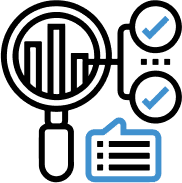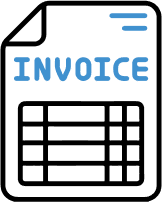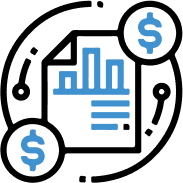iTech uses cookies so that we can provide you with the best user experience possible. Cookie information is stored in your browser and performs functions such as recognizing you when you return to our website and helping our team to understand which sections of the website you find most interesting and useful.
Accounts payables aging is a crucial financial metric that provides an overview of your outstanding unpaid invoices. Typically, invoices are classified into aging buckets 30, 60, 90, and 120+ days past their due date. This aging report offers a snapshot of your company’s financial well-being by illustrating how long payments from clients or customers have remained outstanding.
Aging buckets, especially those that track invoices over 90 days past their due date, hold significant importance for businesses. These aging buckets provide valuable insights into a company’s financial health and operational efficiency. Here are some key reasons why accounts payables aging buckets over 90 days are significant:
Cash Flow Impact:
Invoices that remain unpaid for over 90 days can significantly impact a company’s cash flow. As these invoices accumulate, they tie up working capital that could be used for daily operations, investments, or debt reduction. A large volume of invoices in this aging bucket can strain cash reserves and hinder a company’s ability to meet its financial obligations.
Risk Assessment:
An abundance of invoices in the over 90-day aging bucket may signal potential risks. It could indicate issues with customer solvency, disputes over goods or services delivered, or internal inefficiencies in the accounts payables process. Identifying and addressing these risks promptly is essential to mitigate their impact on the business.
Financial Reporting:
Accounts payables aging reports are often used for financial reporting and analysis. A large balance in the over 90 days bucket can distort financial ratios and make the company appear less financially stable than it might be. Investors, lenders, and stakeholders closely examine these reports to assess the company’s financial performance and stability.
Operational Efficiency:
A high volume of invoices in the over 90 days bucket may indicate inefficiencies in the accounts payables process. This could involve delays in invoice processing, disputes needing to be resolved on time, or inadequate follow-up on outstanding payments. Identifying these operational bottlenecks is essential for process improvement.
Creditworthiness:
An unfavorable accounts payables aging profile, particularly in the over 90 days category, can negatively impact the company’s creditworthiness. Lenders and creditors often review these aging reports when making lending decisions, and a poor record may result in higher borrowing costs or difficulty securing financing.
Legal Considerations:
Extremely overdue invoices may require legal action to recover the outstanding amounts. Businesses need to be aware of the legal implications, potential litigation costs, and the impact on their reputation when dealing with invoices in this aging bucket.
How Outsourcing with Machine Learning Can Improve Accounts Payables Aging
Outsourcing accounts payables functions to a partner with machine learning capabilities can usher in a range of benefits to enhance your accounts payables aging:
1. Predictive Analytics
- Payment Predictions: Machine learning models can analyze historical payment data and identify patterns. By predicting which invoices are likely to be paid late, businesses can proactively address these invoices by reaching out to clients or customers for payment reminders.
- Supplier Behavior Analysis: Machine learning can assess the payment behavior of different suppliers or clients. Businesses can adjust their invoicing strategies or payment terms if specific clients consistently delay payments.


2. Invoice Processing Efficiency
- Automated Data Entry: Machine learning can automate the invoice data entry process, reducing errors and expediting processing time. This ensures that invoices are sent out promptly.
- Invoice Matching: Machine learning algorithms can match purchase orders and receipts with invoices, helping to identify discrepancies and resolve issues more quickly.
3. Fraud Detection
- Anomaly Detection: Machine learning can detect unusual patterns or behaviors that may indicate fraudulent activities. This helps prevent payment to fraudulent entities and ensures that payments go to legitimate suppliers or clients


4. Workflow Optimization
- Process Streamlining: Machine learning can analyze your accounts payables workflow to identify bottlenecks or inefficiencies. This can lead to process improvements, reducing delays in invoice processing.
- Task Prioritization: Machine learning can prioritize tasks, ensuring critical invoices are processed and paid on time.
5. Payment Automation
- Scheduled Payments: Machine learning can automate scheduled payments, ensuring that invoices are paid according to agreed-upon terms. This reduces the risk of human error and delays in payment processing.


6. Communication Enhancement
- Automated Reminders: Machine learning can send automatic payment reminders to clients or customers as invoices approach their due dates. This proactive communication can encourage timely payments.
- Resolution of Disputes: Machine learning can help identify and flag invoices with potential discrepancies or disputes, allowing for quick resolution to prevent further delays.
7. Cash Flow Forecasting
- Real-time Insights: Machine learning can provide real-time insights into your cash flow, helping you anticipate potential cash shortages or surpluses. This enables better financial planning and management.


8. Supplier Collaboration
- Supplier Portals: Machine learning can facilitate the creation of supplier portals where suppliers can access invoice status and payment information, promoting transparency and collaboration
9. Compliance Monitoring
- Regulatory Compliance: Machine learning can help businesses stay compliant with financial regulations and ensure that payments are made in accordance with legal requirements.


10. Continuous Learning
- Feedback Loops: Machine learning models can learn from past data and feedback. Over time, they become more accurate in predicting payment behavior and optimizing accounts payables processes.
Machine learning can be a powerful tool for businesses to maintain their accounts payables under 90 days. Machine learning enables businesses to manage their cash flow more effectively and maintain positive relationships with suppliers and clients by automating processes, predicting payment behaviors, optimizing workflows, and enhancing communication.
Accounts payables aging is a crucial gauge of your financial health and profoundly influences your company’s ability to thrive. Prolonged payment cycles and unpaid invoices can strain your cash flow and hinder growth potential. By outsourcing your accounts payables management to a partner armed with machine learning capabilities, you can strategically take control of your accounts payables aging and propel your business to new heights. Consider adopting machine learning technologies to expedite payments, enhance accuracy, and optimize financial well-being. It’s a powerful way to stay ahead in the competitive business landscape.
If you would like to know more about how Machine Learning can assist your company’s AP health, please reach out to iTech today. We would be happy to hear where you are today and provide a free Proof Of Concept that will show you where you could be.


